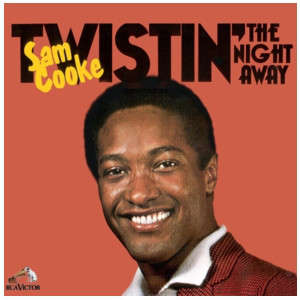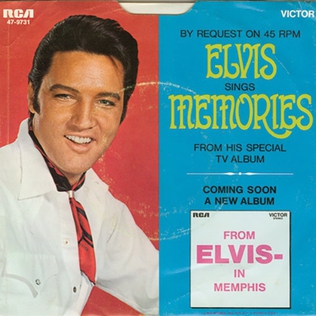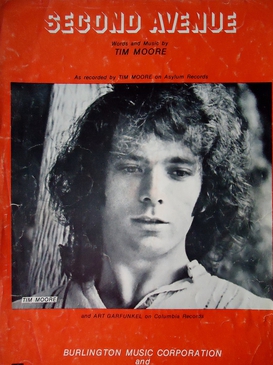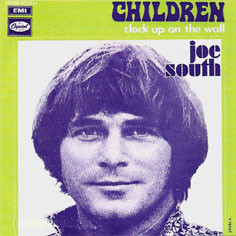
"Gonna Fly Now", also known as "Theme from Rocky", is the theme song from the movie Rocky, composed by Bill Conti with lyrics by Carol Connors and Ayn Robbins, and performed by DeEtta West and Nelson Pigford. Released in 1976 with Rocky, the song became part of 1970s American popular culture after the film's main character and namesake Rocky Balboa as part of his daily training regimen runs up the 72 stone steps leading to the entrance of the Philadelphia Museum of Art in Philadelphia and raises his arms in a victory pose, while the song plays. The song was written in Philadelphia. The song is often played at sporting events, especially in Philadelphia. Most notably, the Philadelphia Eagles play the song before the opening kickoff of every home game at Lincoln Financial Field.

"You're Sixteen" is a song written by the Sherman Brothers. It was first performed by American rockabilly singer Johnny Burnette, whose version peaked at number eight on the US Billboard Hot 100 in December 1960 and number 3 in the UK in 1961. The song was covered by Ringo Starr in 1973 and this version reached number one in the US.

"Wonderful World" is a song by American singer-songwriter Sam Cooke. Released on April 14, 1960, by Keen Records, it had been recorded during an impromptu session the previous year in March 1959, at Sam Cooke's last recording session at Keen. He signed with RCA Victor in 1960 and "Wonderful World", then unreleased, was issued as a single in competition. The song was mainly composed by songwriting team Lou Adler and Herb Alpert, but Cooke revised the lyrics to mention the subject of education more.

"Twistin' the Night Away" is a song written and recorded by Sam Cooke. It was recorded on 18 December 1961 and released as a single in 1962. It became very popular, charting in the top ten of both the Billboard Hot 100 (#9) and Billboard's R&B chart (#1). "Twistin' the Night Away" was successful overseas as well, peaking at #6 on the UK Singles Chart.

"Tired of Toein' the Line" is a song by Rocky Burnette, who co-wrote it with Ron Coleman, former bass player of the Brothers Grim and the Everly Brothers.

"Go Away Little Girl" is a popular song written by Gerry Goffin and Carole King. It was first recorded by Bobby Vee for Liberty Records on March 28, 1962. The lyrics consist of a young man asking a young attractive woman to stay away from him, so that he will not be tempted to betray his steady girlfriend by kissing her. The song is notable for making the American Top 20 three times: for Steve Lawrence in 1963, for The Happenings in 1966, and for Donny Osmond in 1971. It is also the first song, and one of only nine, to reach US number 1 by two different artists. Also notable in each of the solo versions is the similar double-tracked treatment of the singer's voice.

"If You Could Read My Mind" is a song by Canadian singer-songwriter Gordon Lightfoot. Lightfoot wrote the lyrics while he was reflecting on his own divorce. It reached No. 1 on the Canadian Singles Chart on commercial release in 1970 and charted in several other countries on international release in 1971.

"Dandy" is a 1966 song by the Kinks, appearing on their album Face to Face.

"Keep on Singing" is a 1973 song composed by Danny Janssen and Bobby Hart, and was originally recorded by Austin Roberts from the album Austin Roberts. It was released as a single on Chelsea Records and reached No. 50 on the U.S. Billboard Hot 100 and No. 39 on the Cash Box Top 100. In Canada it reached # 79. "Keep on Singing" was best known as a hit single by Helen Reddy in 1974.

"Love Ballad" is a song by R&B/Funk band L.T.D. Jeffrey Osborne is the lead singer.

"Cupid" is a song by American singer Sam Cooke, released on May 16, 1961. It charted at number 17 on the Billboard Hot 100 and number 20 on the Hot R&B Sides chart; the track performed best in the United Kingdom, peaking at number seven on the UK Singles Chart. The song is featured on Cooke's greatest hits album, The Best of Sam Cooke (1962). Cooke's producers had asked him to write a song for a girl they had seen on a Perry Como TV show—but once they heard her sing, they kept "Cupid" for Cooke himself.

"I've Lost You" is a song written by Alan Blaikley and Ken Howard for Iain Matthews. It was originally recorded in 1969 and released on Matthews' first solo album after leaving Fairport Convention: Matthews' Southern Comfort.
"Swayin' to the Music (Slow Dancin')", initially titled "Slow Dancing", is a song written by Jack Tempchin. Under the title "Slow Dancing", the song originally was a minor US hit in 1976 for the band Funky Kings (of which Tempchin was a member). The song became much better known as "Swayin' to the Music (Slow Dancin')" in a 1977 cover version by Johnny Rivers, which became a top ten US hit. It was Rivers' last Top 40 hit in the United States, and became his second Gold record.

"Only Sixteen" is a song by American singer-songwriter Sam Cooke, released in May 1959. The song was a top 15 hit on Billboard's Hot R&B Sides chart and also charted within the top 30 of the Billboard Hot 100 and the UK Singles Chart. In the UK it was covered, and taken to No. 1, by Craig Douglas.

"Memories" is a 1968 song originally recorded by Elvis Presley.

“Second Avenue” is a song written by American singer-songwriter Tim Moore. The song was released in 1974 as Moore's second single from his debut LP, concurrently with a version by Art Garfunkel, which received greater notice.

"I Believe in Love" is the debut solo single by American musician Kenny Loggins. It was written by Loggins with lyrics by Alan and Marilyn Bergman. The song was introduced by Barbra Streisand in the 1976 film A Star Is Born, and appears on its soundtrack album. It was released in November 1976 as the B-side to the album's first single, "Evergreen ".

"Getting Over You" is a song written by Tony Hazzard in 1973, and recorded by various artists, including the writer. Hazzard's original is from his LP 'Was That Alright Then?' and was included on his double album 'Go North - The Bronze Anthology'.

"Children" is a song written by Joe South, originally from his 1969 album Don't It Make You Want to Go Home?. In 1970, he released it as a single.
MPD Ltd or M. P. D. Limited were an Australian pop music band formed in 1965 by core members Mike Brady on lead vocals and guitar, Pete Watson on bass guitar and lead vocals, and Danny Finley on drums. They used their first initials to provide the name. Their popular singles were "Little Boy Sad" and "Lonely Boy" (October). MPD Ltd issued an album, The Best of MPD Ltd, in 1966 on Go!! Records before disbanding in 1967. Pete Watson died of an illness on 30 April 1972.


















